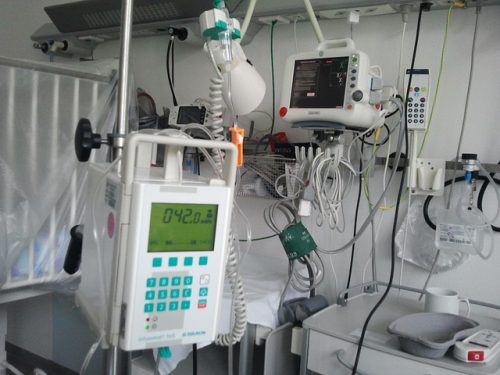PETALING JAYA: The US-China trade war offers an opportunity for Malaysian medical device manufacturers to continue to position themselves as alternative producers and suppliers to China, Fitch Solutions Macro Research said in a report.
According to the report, recent moves by the US government to further ramp up tariffs on Chinese-made products will increase pressure on Chinese companies to relocate manufacturing operations; therefore, Malaysia’s access to the US and other major world markets would increase its attractiveness as an alternative manufacturing base.
In the short term, local rubber glove manufacturers stand to benefit from the recent US tariffs imposed on Chinese medical gloves.
“The US government has imposed a 15% tariff on medical gloves made in China effective from Sept 1, 2019, as a result of which US importers are seeking alternative sources of supply from other manufacturers in Asia.
“As the world’s largest producer of rubber gloves, Malaysia stands to benefit from this shift in supply chain. The US imported medical gloves valued at US$2 billion in 2018, of which around three-quarters came from Malaysia and 11% from China,” the report said.
The Fitch report also said higher US demand for Malaysian gloves will boost industry profit margins which have been hit by increases in raw material costs and surplus capacity due to over-expansion by Hartalega Holdings Bhd, Kossan Rubber Industries Bhd, Supermax Corp Bhd and Top Glove Corporation Bhd.
“On the downside, the market environment for medical gloves in Europe is likely to become more competitive as Chinese producers shift their focus away from the US market.”
Over the longer term however, Fitch said, additional tariffs on a broad range of medical devices could help drive direct foreign investment into Malaysia’s medical device industry, boosting its international competitiveness.
“We highlight that the Malaysian government is actively encouraging more investment from China, particularly in high-tech industries.
“Finance Minister Lim Guan Eng stated that Malaysia is keen to learn from Chinese expertise in artificial intelligence, advanced materials, robotics and cloud computing. This would allow Malaysia to build on current initiatives to boost high-tech manufacturing,” Fitch said.
To date, US tariffs on Chinese-made medical devices have mainly targeted diagnostic imaging and electro-medical apparatus with most consumables remaining exempt.
Conversely, Chinese tariffs on US products have targeted a much broader range of devices and this could encourage more investment into Malaysia’s manufacturing sector from the US.
US medical devices companies with manufacturing operations in Malaysia include Abbott, Becton Dickinson, Boston Scientific, Cardinal Health, Medtronic and Teleflex.













